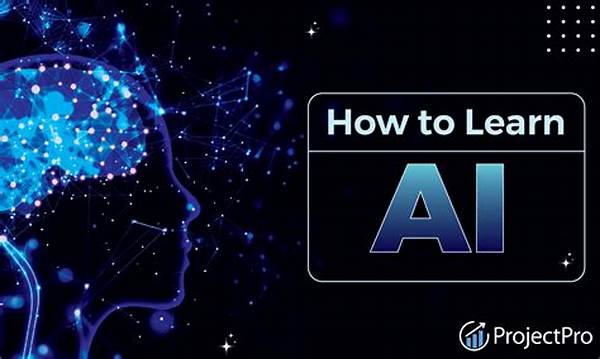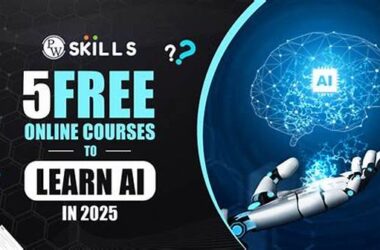- Article with Heading H1: “How to Learn AI as a Beginner”
- Paragraph 1
- Paragraph 2
- Paragraph 3
- Paragraph 4
- H2: Key Steps in Mastering AI as a Beginner
- Discussion (500 words)
- Understanding the Basics
- H2: The Art of Data and Algorithms
- H3: A Hands-On Approach
- Attendees of Innovation
- Tags and Discussion Points
- H2: 10 Tips for Mastering AI as a Beginner
- Short Article (400 words)
- Crafting Your Path
- H3: Engaging through Hands-on Projects
- Embrace Curiosity
I’m here to help you with article creation. Let’s start by addressing each task separately.
Read More : Ai Beginner Jobs
Article with Heading H1: “How to Learn AI as a Beginner”
Introduction (400 words)
Artificial Intelligence (AI) is reshaping industries, enhancing everyday technology, and paving the way for a future filled with innovation and automation. If you’re an AI novice standing on the fringes of what feels like a complex digital forest, don’t worry. You’ve got an exciting journey ahead. Knowing how to learn AI as a beginner opens up a realm of opportunities, both professionally and personally. AI is not all high-fives with robots or coding 101, but understanding its fundamentals can significantly enhance your career trajectory.
AI transforms how businesses operate and compete. Whether it’s Siri assisting you with your daily schedule, Amazon recommending your next buy, or even Tesla driving you home — AI’s presence is ubiquitous. The ability to engage with and master AI concepts could be your key to unlocking a fascinating new career in tech.
For those contemplating their first steps into this field, this article will break it down. We’ll take you through need-to-know basics and guide you on an explorative path towards AI mastery. Our method will adopt the Unique Selling Point of engaging with AI: an intersection of creativity and logic with an invitation for curious minds to explore, learn, and ultimately innovate.
Paragraph 1
AI isn’t just for computer science graduates; it’s for the curious thinkers ready to engage in an ever-evolving study of machines. This technology replicates tasks that require human intelligence, like learning, reasoning, problem-solving, and decision-making. A solid online course is an obvious starting point, offering foundational knowledge in a structured manner. Websites like Coursera and edX provide beginner-friendly courses to kick off your journey.
Paragraph 2
The beauty of AI lies in its collaborative potential. Joining an AI-focused online community is a massive boon to any learner. Engaging in discussions, seeking help from veterans, and contributing to projects can accelerate one’s learning curve. Platforms like GitHub and Reddit house vibrant discussions where you can absorb and contribute to AI conversations.
Paragraph 3
Applying theoretic knowledge through hands-on projects is essential. By experimenting with real-world data and machine learning models via platforms like Kaggle, beginners can build a portfolio that showcases their practical understanding. The tactile experience not only solidifies theoretical knowledge but also builds confidence.
Paragraph 4
Don’t just learn in silos. Mentor relationships and networking can enhance learning experiences exponentially. Attend AI meetups, webinars, or conferences. These interactions can illuminate your path, offering industry insights and career advice from seasoned professionals. Remember to ask, “How to learn AI as a beginner?” and gather varied perspectives during these events.
H2: Key Steps in Mastering AI as a Beginner
—
Discussion (500 words)
Engaging with AI: A Newbies Network
Welcome, you curious AI aspirant! Ever toyed with the idea of machines that could outthink humans? How to learn AI as a beginner without tripping over complex algorithms might seem daunting. But here’s where the intrigue lies — the more you engage with AI, the more fascinating it becomes. AI is an exciting, ever-evolving field, and breaking into it can be both a thrilling and challenging journey.
Understanding the Basics
Before diving deep, anchor yourself in the basics. Machine Learning (ML), Neural Networks, and Data Science form the core triad of AI. Various platforms offer beginner courses — think Udacity, Khan Academy, or even YouTube channels bursting with free content. This shouldn’t feel like traditional learning. Instead, think of it as unraveling a mystery, engaging with puzzles that have real-world implications.
H2: The Art of Data and Algorithms
At the heart of AI is data. Tons of it. Rolling up your sleeves and getting your digits grubby with data manipulation is key. Python remains a powerful ally in the world of AI programming. Free resources, tutorials, and interactive websites can help demystify data manipulation and analysis. Remember those high school algebra classes? They resurface here, but with a purpose. Algorithms, the brains of AI, are dependent on your willingness to embrace logic and creativity.
Collaborative Learning
The AI community is gold. We’re talking Reddit threads alive with conversation, GitHub repos thriving with shared projects, and Discord channels buzzing with enthusiastic novices and veterans. Engage in collaborative learning and find mentorship among these groups. Asking how to learn AI as a beginner in these spaces can produce a waterfall of resources and advice.
H3: A Hands-On Approach
Merely understanding theory isn’t enough. A hands-on approach is vital. Kaggle offers datasets and competitions to help you apply your knowledge practically. This practice not only cements your understanding but also builds a portfolio that can seduce potential employers.
Attendees of Innovation
The world of Artificial Intelligence is dynamic. Attend workshops, webinars, or AI conferences to stay updated about the latest trends and tools. Interaction with professionals can offer insights that books or online courses might miss. These events are treasure troves of knowledge, and being present is an invitation to innovation.
—
Tags and Discussion Points
Short Discussion Description
Learning AI as a beginner can feel like wandering through a digital forest armed only with curiosity and determination. But fear not! The journey into AI is less daunting with a structured approach. Start by understanding basic AI concepts like machine learning, data manipulation, and algorithm building. Utilize platforms offering free courses and tutorials to establish a strong foundation. Once the theory is understood, implementing practical projects on platforms such as Kaggle can solidify your learning and build an empowering portfolio. Engaging with online communities, attending meetups, and networking with AI professionals can accelerate your progress into mastering AI. Embrace this journey as a continuous learning curve where each new concept you grasp brings the world of AI into clearer focus, preparing you for a boundless digital future.
—
H2: 10 Tips for Mastering AI as a Beginner
AI Learning Tips List
Short Description (300 words)
Venturing into the world of AI as a beginner can seem like an uphill battle. However, with the right strategies and persistence, anyone can master the basics and beyond. Understanding how to learn AI as a beginner starts with grasping fundamental concepts of AI such as machine learning, data processing, and algorithm creation. Python remains a cornerstone in this journey, with its wide range of libraries tailored for AI applications.
Embarking on practical projects is invaluable. Platforms like Kaggle offer a playground for experimenting with datasets and machine learning models, turning theoretical knowledge into practical skillsets. This hands-on experience not only builds confidence but also crafts a portfolio that potential employers value.
Connectivity is crucial. Joining AI-centric forums and communities can provide insights, guidance, and support from both novices and experts. Engaging with these platforms allows you to stay abreast of pioneering trends and collaboratively solve problems. Networking through AI events is another excellent opportunity for acquiring knowledge, understanding industry demands, and possibly mentoring under seasoned professionals.
Finally, maintaining an adaptable mindset is essential. AI, as a domain, is in perpetual motion. New tools, frameworks, and discoveries surface regularly. Therefore, staying curious and embracing learning as a lifelong journey will keep you competent and relevant in this ever-evolving digital landscape.
—
Short Article (400 words)
H2: Beginner-Friendly Steps in AI
Embarking on a journey in Artificial Intelligence (AI) can pique both excitement and fear, but truly understanding how to learn AI as a beginner requires embracing those feelings. With AI becoming a powerhouse in technological advancement, entering this field is like stepping onto a moving carousel of continuous innovation and opportunity. But where does one start?
Crafting Your Path
Starting with an understanding of AI’s core concepts like machine learning and neural networks is crucial. These form the building blocks upon which your AI knowledge will flourish. Numerous online platforms provide easy-to-digest resources tailored for beginners. They are the stepping stones, blending theory and application.
H3: Engaging through Hands-on Projects
Theory alone doesn’t seal the deal. Real competence in AI begins when theory is coupled with practice. Engaging in projects through platforms like Kaggle or experimenting with open datasets nurtures a deeper understanding. Such experiences prepare you for real-world challenges and boost your confidence.
The Significance of Community
AI is not a solitary pursuit. Engaging in forums such as Reddit or AI-focused Discord channels can foster communal learning and provide a support network. Cluster with others asking, “How to learn AI as a beginner?” and use shared experiences to propel forward.
Embrace Curiosity
Curiosity is your best friend in AI learning. Delving into the depths of this field with a curious mind illuminates new insights and keeps you ahead in learning new AI tools or methodologies. With the world of AI continuously morphing, your learning approach must be as dynamic.
Final Thoughts
Remember, embarking on the AI expedition doesn’t mean you need to leap; instead, take steady, thoughtful steps. Each step, whether learning a new algorithm or conquering a dataset, advances your understanding and capability. Embrace mistakes as latent victories—lessons guiding you closer to AI mastery. In time, how to learn AI as a beginner will transform from a query into your personal testimony of technological triumph.



